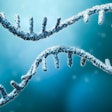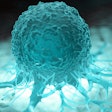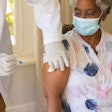
The National Institutes of Health on Monday said it has awarded eight research grants to refine new technologies for early diagnosis of severe illnesses resulting from SARS-CoV-2 infection in children.
The new awards follow grants issued in 2020 to foster methods for diagnosing children at high risk for multisystem inflammatory syndrome MIS-C) -- a rare, severe, and sometimes fatal after-effect of SARS-CoV-2 infection or exposure in children.
The awards are from NIH’s Predicting Viral-Associated Inflammatory Disease Severity in Children with Laboratory Diagnostics and Artificial Intelligence initiative. They are part of the Rapid Acceleration of Diagnostics Radical (RADx-rad) program to support new, nontraditional approaches and new uses of existing tools to address gaps in COVID-19 testing and surveillance.
Although some children develop mild or no symptoms from COVID-19, others will develop more severe effects, including MIS-C, which results in inflammation of one or more organs, including the heart, lungs, kidneys, brain, skin, eyes, and gastrointestinal tract.
“These highly innovative technologies and tools have the potential to greatly improve the care of children with SARS-CoV-2 infection and other fever-causing illnesses,” Dr. Bill Kapogiannis of NIH’s Eunice Kennedy Shriver National Institute of Child Health and Human Development (NICHD) said in a statement. NICHD oversees the grants.
The 2020 awards supported studies involving more than 7,400 research participants in four countries and yielded prototype methods and techniques for potential use in clinics, emergency departments, and for hospital inpatients, NIH said.
The studies were supported through NIH’s RADx-rad initiative and were part of an NIH collaborative research effort called Caring for Children with COVID. Results from the studies include a laboratory technique for detecting specific immune cells associated with MIS-C; databases that help diagnose children at risk for MIS-C and severe COVID-19, based on certain blood proteins and genetic biomarkers; and a database that can distinguish between MIS-C, Kawasaki disease (which has similar symptoms), and fever-causing viral and bacterial infections.
The new awards will allow researchers to continue their efforts to develop ways to rapidly diagnose MIS-C and identify those at risk for serious and long-term effects of SARS-CoV-2, NIH said. Earlier identification of those most at risk will allow for earlier interventions to prevent severe health effects.
Awardees:
- Jane C. Burns, University of California, San Diego: Diagnosing and predicting risk in children with SARS-CoV-2-related illness
- Cedric Manlhiot, Johns Hopkins University, Baltimore: Data science approach to MIS-C identification and management associated with SARS
- Ananth V. Annapragada, Baylor College of Medicine, Houston: AICORE-kids: Artificial intelligence COVID-19 risk assessment for kids
- Audrey R. Odom John, Children’s Hospital of Philadelphia: Diagnosis of MIS-C in febrile children
- Usha Sethuraman, Central Michigan University, Mount Pleasant: Severity predictors integrating salivary transcriptomics and proteomics with multineural network intelligence in SARS-CoV2 infection in children
- Juan C. Salazar, Connecticut Children’s Medical Center, Hartford: Identifying biomarker signatures of prognostic value for MIS-C
- Charles Yen Chiu, University of California, San Francisco: Discovery and clinical validation of host biomarkers of disease severity and MIS-C with COVID-19
- Lawrence Kleinman, Rutgers Robert Wood Johnson Medical School, New Brunswick, NJ: COVID-19 network of networks expanding clinical and translational approaches to predict severe illness in children


















